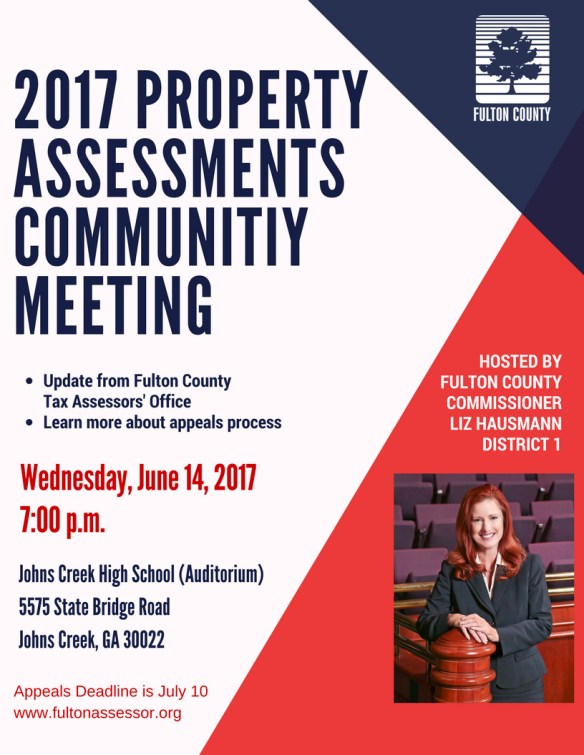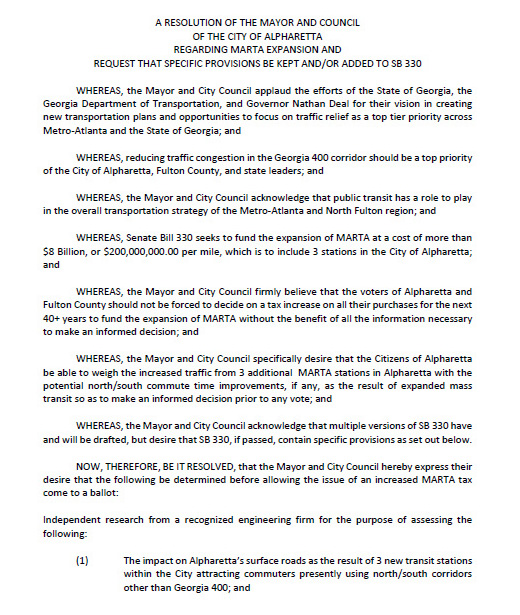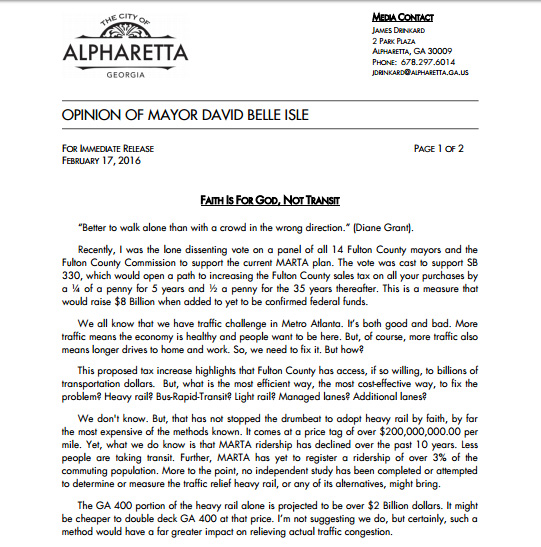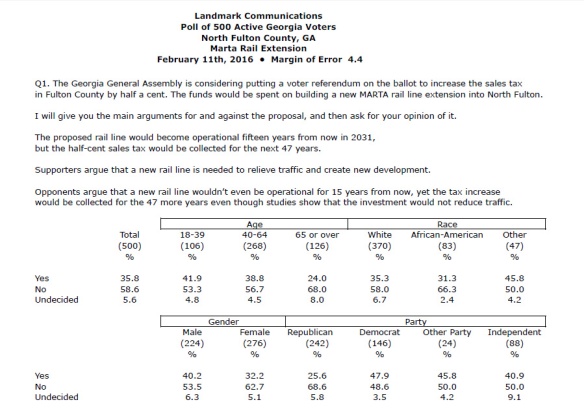A few days ago I wrote this article about this Fulton County’s recent property tax assessments after receiving numerous calls and messages from neighbors with questions or complaints. As I mentioned in the previous article city officials like myself have absolutely no control over the assessments so our only options are to leverage whatever political influence we may have to encourage a reasonable resolution by those who do have control of the situation and adjust our local tax rate as we see fit based on the decision handed down.
With that in mind I have had several conversations with elected officials at the state and county level over the past few days and would like to provide an update. Every elected official I have spoken to is upset with the way the tax assessment process has been handled and I have been encouraged by the attention given to this urgent matter. One way or another local governments need to know our tax base as soon as possible. The city of Alpharetta will begin our current budget ends in less than three weeks and it is absolutely absurd that we still don’t know what our property tax base will be to plan for the next year.
Fulton County Vice Chairman Bob Ellis who represents Fulton’s 2nd District and lives in Milton has been at the forefront of trying to resolve this convoluted problem. Vice Chair Ellis held a public meeting last Thursday to hear from residents. This report from 11 Alive titled “Tempers Erupt in Meeting Halls over Fulton County Tax Bills” covered the meeting. A lot of upset taxpayers took advantage of the opportunity to voice their concerns and when I spoke to Bob on Friday he was sincerely glad to given them the opportunity. You may watch the full video of the town hall meeting here.
Vice Chair Ellis has also called upon state legislators to intervene if the problems cannot be successfully resolved at the local level. I am personally concerned about further state involvement in local governance because some of the existing assessment problems are unintended consequences of previous legislation. For example, state law currently requires governments to value residential properties between 90 and 110 percent of fair market value so Fulton County can be fined $1 million if this years’ assessments don’t reflect those values regardless of the consequences. But despite reservations about further state involvement I do appreciate Bob’s insistence that the situation must be remedied one way or another.
Fulton County Chairman John Eaves has also been vocal about the tax assessment problem. Last week Chairman Eaves joined Vice Chair Ellis in calling for the Board of Assessors to rescind the 2017 property tax assessments. Chairman Eaves has also been vocal in calling for a freeze on tax assessments until the issues can be resolved:
“To our homeowners, this is a financial emergency,” Eaves said. “A freeze would mean that most would pay the same in taxes, so long as city hall and school board millage rates were not increased in the past year.”
The Fulton County Board of Assessors was scheduled to vote on the requested tax freeze last week but postponed the vote until this Thursday. However the chief tax appraiser says he won’t recommend rescinding the assessments even at that time.
State Senator John Albers from Roswell who calls the assessment situation a “fiasco” is following the matter closely in case state intervention is required has also expressed concerns that the tax board meeting should be conducted in a more convenient forum for his constituents.
One way or the other it is imperative that the Tax Board resolve the situation immediately so that local governments can make informed decisions on tax millage rates and budgets for next year. This is unacceptable.
Before the tax board’s decision scheduled this week Fulton County Commissioner Liz Hausmann who represents District 1 and lives in Johns Creek will also hold one more public meeting to discuss the matter this Wednesday night, June 14, at Johns Creek High School at 7:00 p.m. I encourage those of you who have questions or comments to please attend the meeting and be heard.













